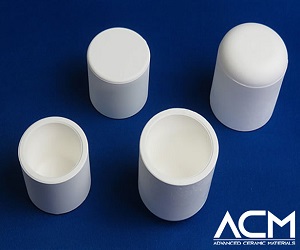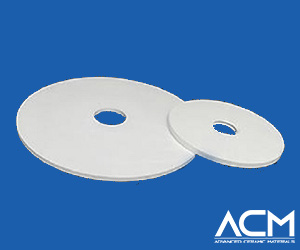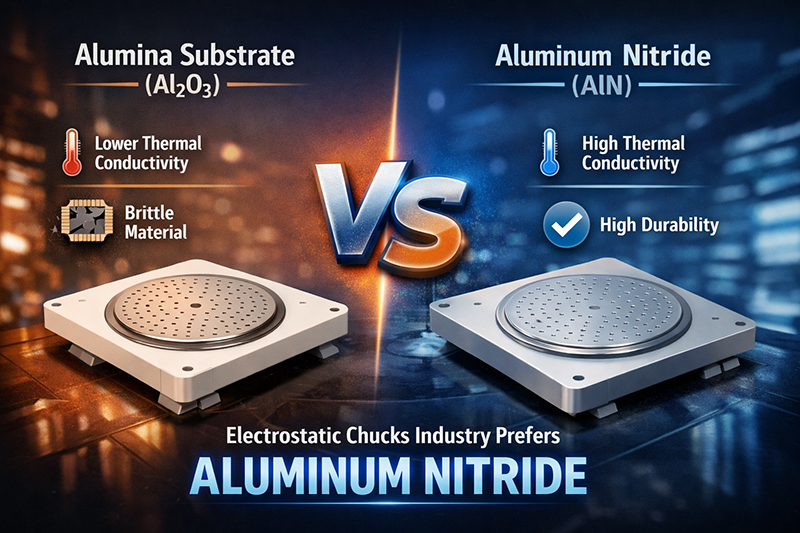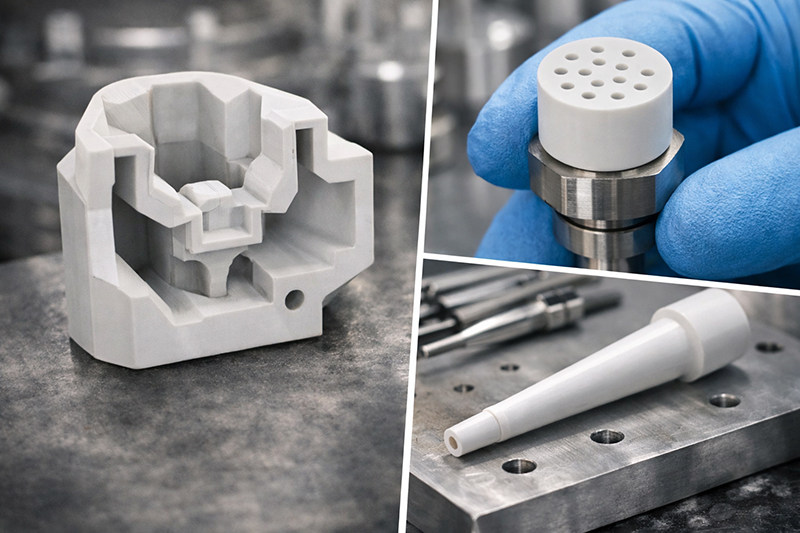BN-AlN: Superior Alternative to Aluminum Nitride
Introduction
Aluminum nitride (AlN) has long been recognized for its exceptional thermal conductivity and electrical insulation properties, making it a popular material in various high-performance applications. However, recent advancements have introduced Boron Nitride-Aluminum Nitride (BN-AlN) composites as a superior alternative. This article explores the unique properties and advantages of BN-AlN composites over traditional AlN, providing insights into their potential applications and benefits.
Understanding Aluminum Nitride (AlN)
Aluminum nitride is widely used in electronics and thermal management due to its excellent thermal conductivity (up to 285 W/mK) and electrical insulation. It is often employed in applications where efficient heat dissipation is critical, such as in semiconductor devices, LEDs, and high-power electronics. Despite its benefits, AlN has limitations, including high brittleness and difficulty in processing.
Key Properties of AlN:
- High thermal conductivity
- Electrical insulation
- Chemical stability
- Mechanical strength
Introduction to BN-AlN Composites
BN-AlN composites combine the beneficial properties of both boron nitride (BN) and aluminum nitride. BN is known for its lubricating properties, high thermal stability, and chemical inertness. When combined with AlN, the resulting composite material offers enhanced performance characteristics, making it a promising alternative for demanding applications.
Key Properties of BN:
- Lubricating properties
- High thermal stability
- Chemical inertness
Key Properties of BN-AlN Composites:
- Enhanced thermal conductivity
- Improved mechanical properties
- Better processability
- Superior chemical stability
Advantages of BN-AlN Over Traditional AlN
BN-AlN composites offer several advantages over pure AlN. These enhancements make BN-AlN an attractive option for applications requiring superior thermal management and mechanical performance.
Thermal Conductivity: While AlN boasts high thermal conductivity, BN-AlN composites can achieve even higher values due to the synergistic effects of BN and AlN. This makes BN-AlN ideal for advanced thermal management solutions.
Mechanical Properties: The brittleness of AlN can be a drawback in certain applications. BN-AlN composites exhibit improved mechanical strength and fracture toughness, reducing the risk of failure in high-stress environments.
Processability: BN-AlN composites are easier to process and manufacture compared to pure AlN. This can lead to cost savings and increased production efficiency, making BN-AlN a more practical choice for large-scale applications.
Chemical Stability: The addition of BN enhances the chemical stability of the composite, providing better resistance to harsh environments. This makes BN-AlN suitable for use in chemically aggressive settings where pure AlN might degrade.
Potential Applications of BN-AlN Composites
The superior properties of BN-AlN composites open up a wide range of potential applications, particularly in industries where thermal management and mechanical performance are critical.
Electronics: BN-AlN composites can be used in high-power electronic devices, LEDs, and semiconductor components, where efficient heat dissipation is essential.
Aerospace: The enhanced mechanical and thermal properties of BN-AlN make it suitable for aerospace applications, including thermal barrier coatings and structural components.
Automotive: In the automotive industry, BN-AlN composites can be used in heat sinks, electronic control units, and other components requiring high thermal conductivity and durability.
Industrial Equipment: BN-AlN is also ideal for industrial applications involving high temperatures and chemically aggressive environments, such as in furnaces and reactors.
Conclusion
BN-AlN composites significantly advance over traditional aluminum nitride, offering superior thermal conductivity, mechanical properties, and chemical stability. These enhancements make BN-AlN an ideal material for many high-performance applications. As industries continue to demand better materials for thermal management and mechanical resilience, BN-AlN is poised to become the material of choice, surpassing the capabilities of pure AlN. Companies like Advanced Ceramic Materials (ACM) are at the forefront of developing and supplying these advanced composites, driving innovation across multiple sectors.
{{item.content}}
LEVE A REPLY
{{item.children[0].content}}
{{item.content}}
LEAVE A REPLY
SUBSCRIBE OUR NEWSLETTER
- How PBN Crucibles Ensure the Quality of GaN & SiC Epitaxial Materials
- SiC vs. Quartz Focus Rings: A Cost and Performance Analysis for Advanced Etch
- AlN Ceramic Substrates: Enabling Next-Gen Electrostatic Chucks
- The Amor of Semiconductor Tools: Why High-Purity Al2O3 & AlN Are Preferred for Plasma Process Chambers
- Silicon Carbide - Ultra-High Temperature Ceramics for Extreme Environments












